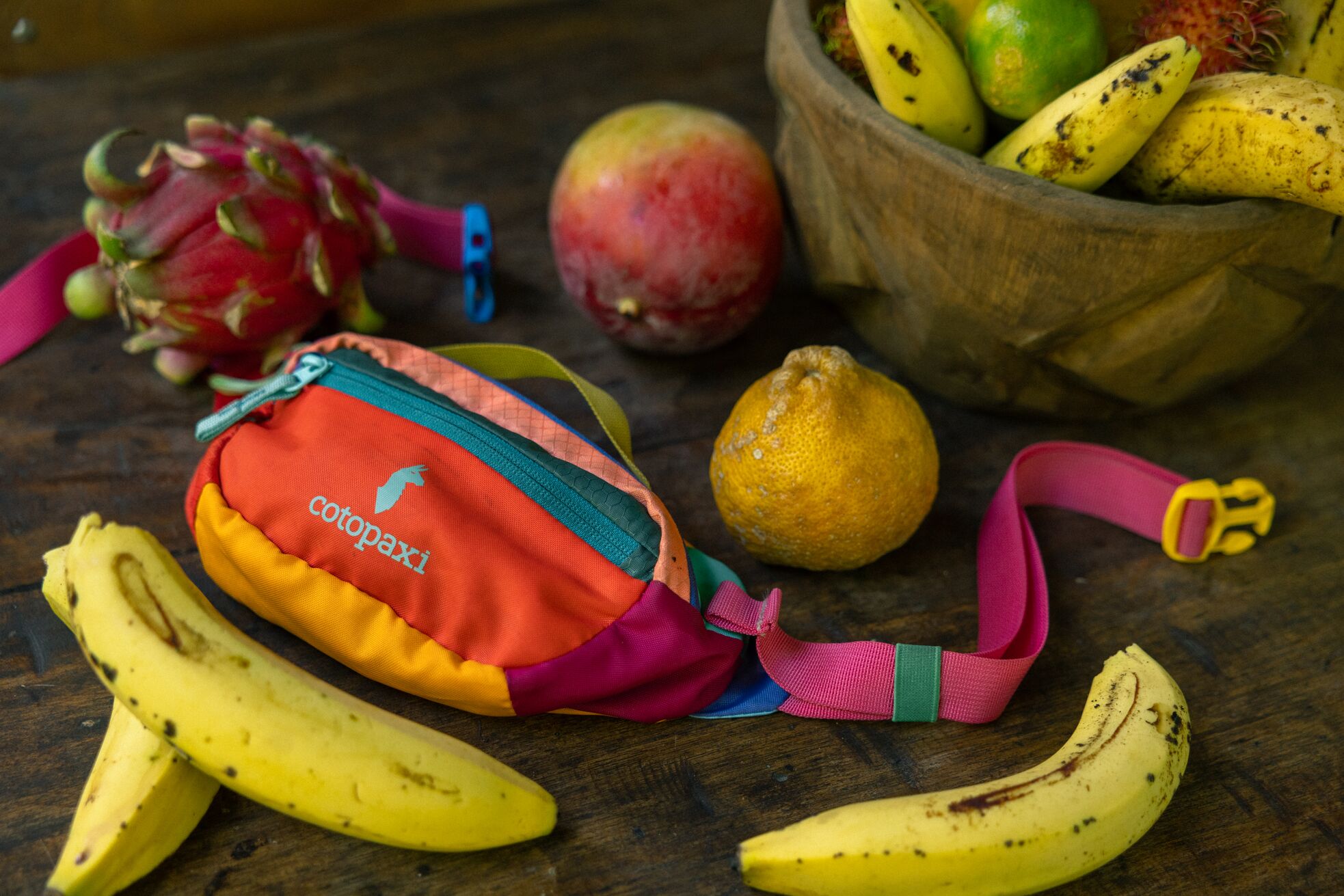NORTH STARS:
Waste Management
Certifications
Community Support
“Our vibrant colors are no accident; they result from an innovative deadstock program where we rescue leftover fabrics and turn them into bold, one-of-a-kind products.“
In 2014, three visionary entrepreneurs—Davis Smith, Stephan Jacob, and Jordan Allred—embarked on a journey to create a brand that would stand for more than just profit. Inspired by their personal experiences and a deep desire to make a positive impact in the world, they founded Cotopaxi, a company that would blend outdoor adventure with a commitment to global good.
Davis Smith, the company’s CEO, had spent much of his childhood in Latin America, where he witnessed firsthand the stark realities of poverty. These early experiences left an indelible mark on him, shaping his values and motivating him to find ways to help those in need. Smith’s entrepreneurial spirit was already well-honed; he had successfully started and sold two other companies before Cotopaxi. But this time, his vision was different. He wanted to build a business that could make a meaningful difference.
The name “Cotopaxi” refers to a volcano in Ecuador, symbolizing both the founders’ connection to Latin America and their mission to tackle monumental challenges. The company’s core philosophy was built around the concept of “Gear for Good,” a simple yet powerful idea that outdoor products could be a vehicle for change. By embedding social impact into every facet of the business, from the design of products to the allocation of profits, Cotopaxi set out to challenge the conventional business model.
Azure Road reached out to Cotopaxi’s team and spoke to Annie Agle, VP of Sustainability, about the company’s business model, vision for the future, and innovations in sustainable fabrics. This interview has been edited for clarity and brevity.
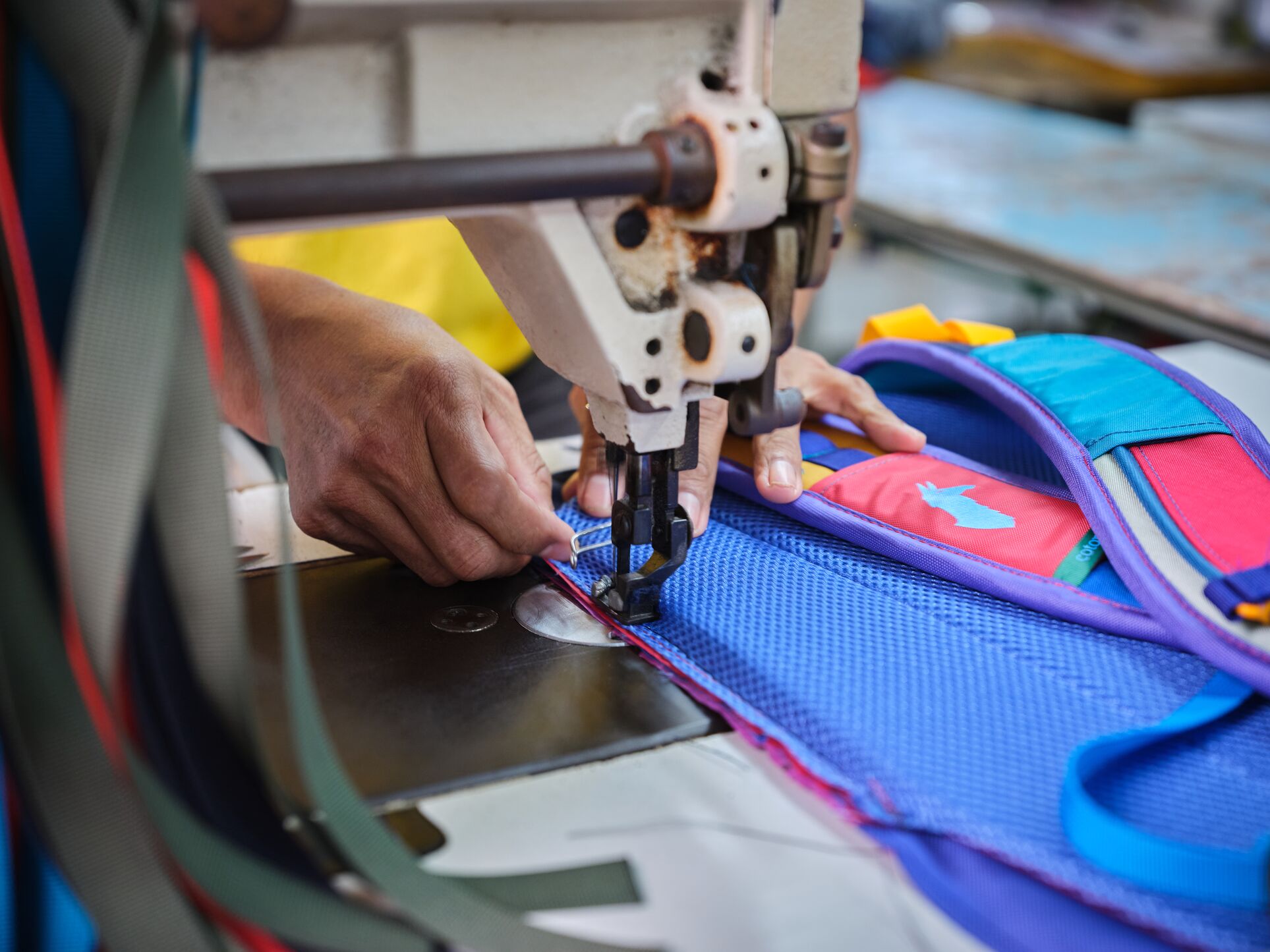
Courtesy of Cotopaxi.
Cotopaxi has been called the “new Patagonia.” Does that seem a fitting reference? Why or why not?
While Cotopaxi and Patagonia share a strong commitment to sustainability and social responsibility, calling Cotopaxi the “new Patagonia” simplifies the unique aspects of each brand. Cotopaxi distinguishes itself through its adventurous spirit and a more direct focus on systemic poverty alleviation, particularly in Latin America. Both brands prioritize environmental stewardship and ethical business practices. Still, Cotopaxi’s approach favors community engagement.
We love Patagonia and admire what they’ve been able to accomplish. What that comparison doesn’t really acknowledge, however, is Cotopaxi’s focus on what we call human sustainability.
As a member of the outdoor industry today, taking care of the planet is a must—it should be table stakes. Our mission is to not only be a leader in creating environmentally sustainable gear and apparel but to also use that gear for good, to lift the human condition. We focus specifically on eliminating extreme poverty and donate at least 1% of our revenue to organizations fighting poverty on the ground. To date, we’ve directly impacted an estimated 4.25M individuals.
Was sustainability built into the business model from the start?
From the start, we have committed to creating products that not only inspire adventure but also make a positive impact on the planet and communities. One of our core strategies has been using repurposed and deadstock materials, which reduce waste and offer unique, colorful products. Our Del Día product line is a prime example, using deadstock fabric to create one-of-a-kind items while preventing these materials from ending up in landfills.
We’ve also focused on building long-term partnerships with manufacturers who share our values, ensuring responsible sourcing and ethical labor practices. Our approach to sustainability is holistic—embracing the circular economy through repurposing, recycling, and using responsible materials. This is reflected in our commitment to certifications like B Corp, which we maintain selectively to align with our mission.
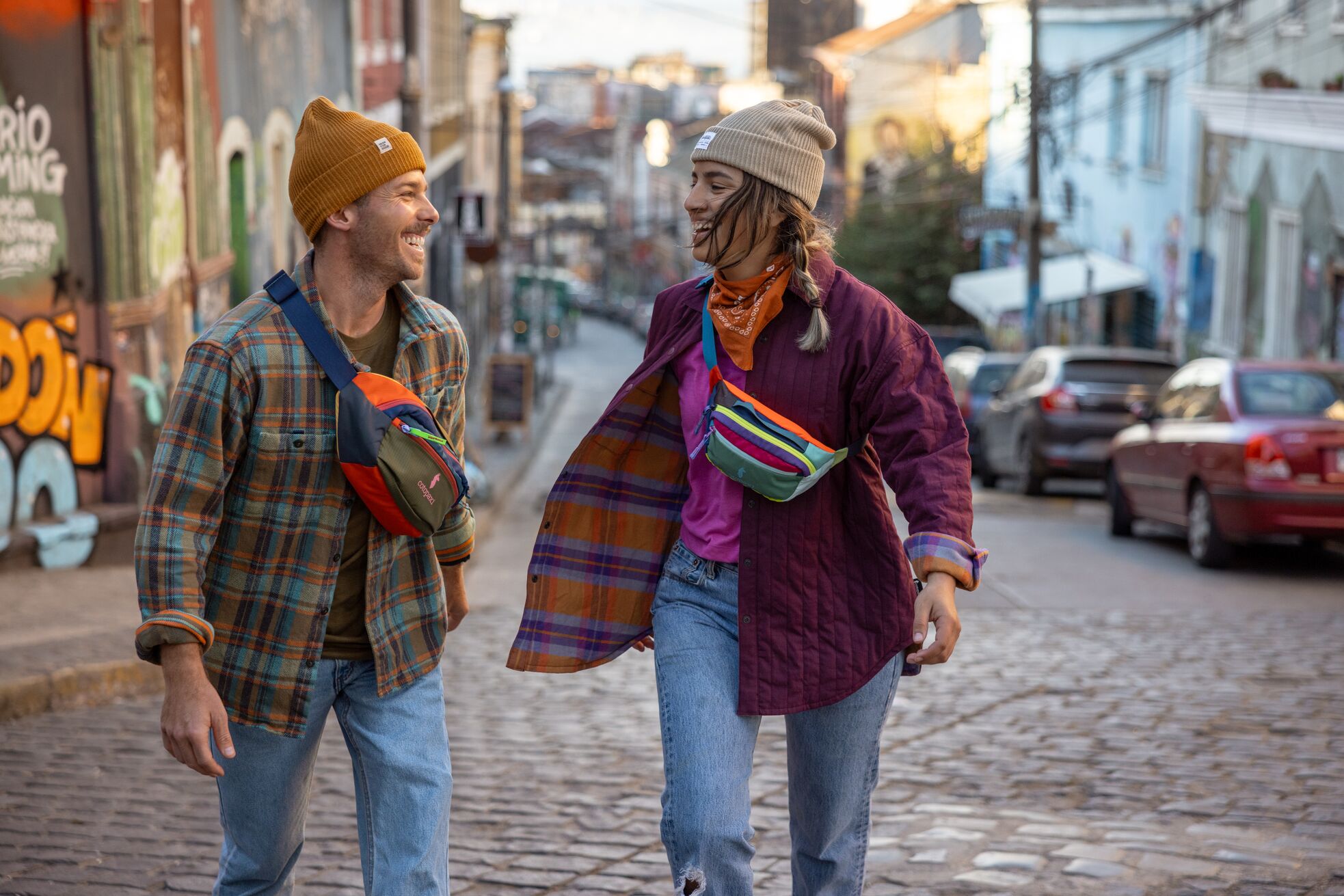
Courtesy of Adam Wells.
How does Cotopaxi distinguish itself as a brand, its products, and its public works?
Cotopaxi was the first venture-backed Public Benefit Corporation in the industry. Most businesses begin as a normal corporation and convert later, but we knew our mission would be at the forefront from the beginning. So, from day one, we’ve been built with impact in our DNA. From there, making decisions that help set us apart from any other brand in our space has been easy.
Our sophisticated philanthropic model also remains the heart of our company. Through the Cotopaxi Foundation, we focus on alleviating extreme poverty in Latin America, emphasizing long-term, systemic solutions rather than quick fixes. Unlike a lot of one-and-done donors, we believe in investing in our non-profit partners over the long term to ensure they can sustain their impact over time.
Can you describe the sustainable materials you work with?
Our current innovations in sustainable materials focus primarily on dead stock fabrics, particularly in our Del Día product line. Textile manufacturing creates significant amounts of waste, so when we saw warehouses full of leftover fabrics, we felt compelled to tackle this problem.
In Spanish, Del Día means “of the day,” so this is very much “fabric of the day.” We don’t know what colors we’re going to get, so we empower the people creating our product to choose whatever color combination they want, resulting in a finished product that is not only colorful and one-of-a-kind but lives up to our commitment to reducing landfill waste. This strategy has proven effective in minimizing environmental impact and creating distinctive products that resonate with our customers.
We’re also committed to using recycled synthetics, especially when natural fibers are not viable for the durability and performance required in outdoor gear. We reduce our reliance on virgin resources by incorporating recycled materials, particularly those derived from post-consumer waste like plastic bottles.
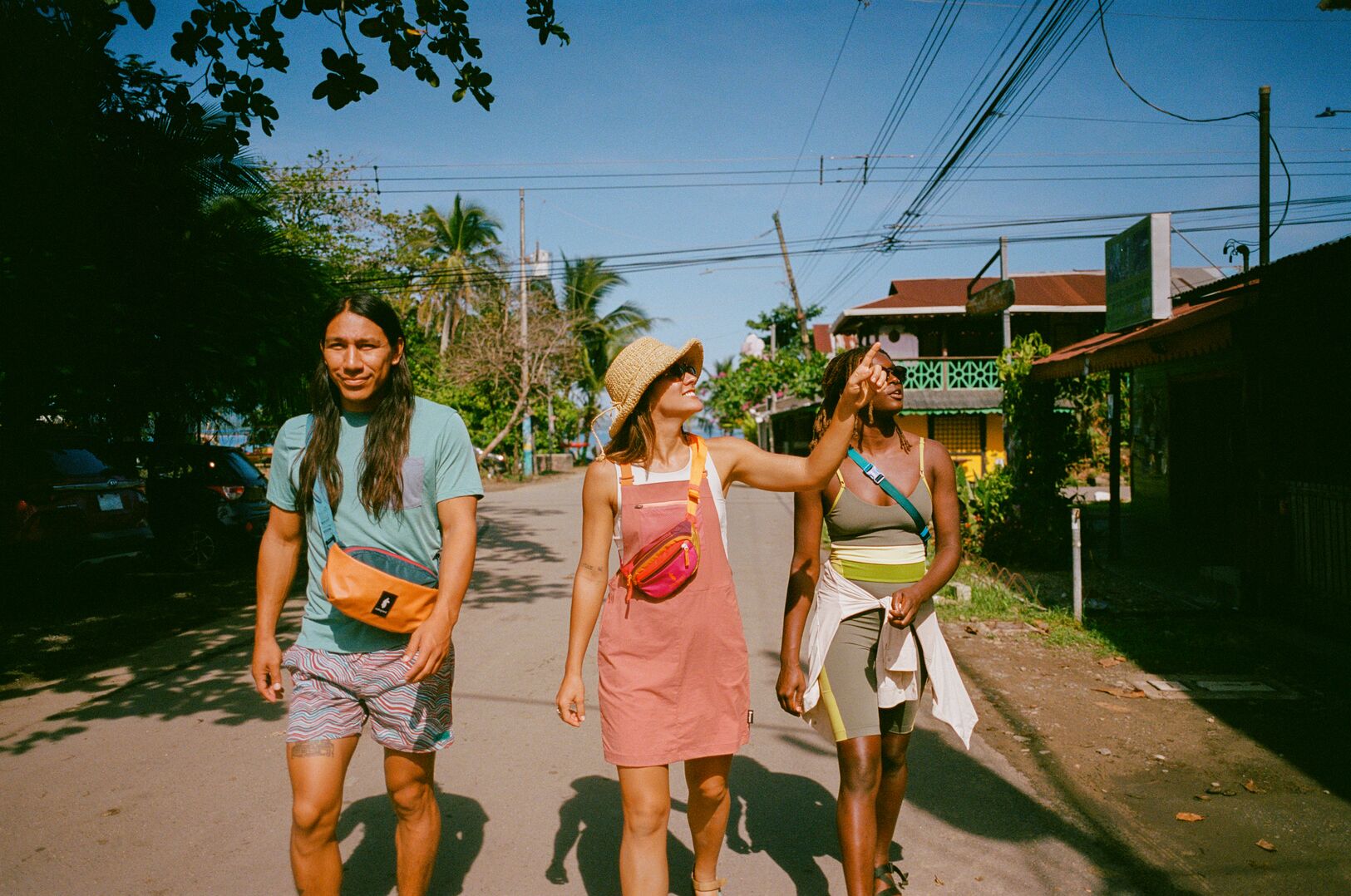
Courtesy of Adam Wells.
A recent investigative report in the NY Times detailed the challenges with properly monitoring and auditing labor abuses in overseas factories. How does Cotopaxi handle this?
We are aware of the challenges in the global supply chain, including issues with factories potentially misleading auditors about working conditions. We take a proactive and transparent approach to prevent this, building long-term relationships with our manufacturing partners and going beyond standard audits.
However, these issues occur everywhere, including in our supply chains. We will only move the needle forward completely through policy and government action. We have advocated strongly for the NY Fashion Act to force the industry as a whole and governments to end these pernicious abuses.
One way we strive for ethical production is by working closely with our factories to help them transition to more sustainable practices, such as adopting solar power and moving towards a living wage. By investing in these partnerships, we create a foundation of trust and shared values that extend to all aspects of the business, including worker treatment. We also believe in and actively provide funding for these transitions. We feel strongly that brands need to put their money where their mouths are, so to speak.
We also prioritize transparency and accountability through direct engagement with our manufacturing partners. This includes conducting thorough worker surveys and third-party ethical audits. However, we don’t rely solely on audits. Our commitment to transparency is also reflected in our Impact Report, where we openly share our supply chain practices, the steps we take to ensure the ethical treatment of workers and the initiatives we’re supporting to improve conditions.
How can customers take a greater interest in sustainable clothing? Fast fashion causes a lot of damage, but most customers don’t know about it.
Educating customers about the impact of their choices is key to shifting interest towards sustainable clothing. Most Americans throw away over 30 pounds of clothing a year! The truth is that consumers need to purchase less, repair more, and resell or recycle everything possible.
Cotopaxi can play a role by highlighting sustainable practices’ environmental and social benefits through its marketing campaigns, social media, and product stories. Encouraging people to think about the lifecycle of their clothing, from production to disposal, and providing transparent information about the impact of fast fashion can also help. Additionally, offering incentives for sustainable choices, such as trade-in programs or discounts on future purchases when customers opt for recycled or upcycled products, can motivate a shift in behavior.
How do trade-ins and ReSale work to improve circularity?
We launched our Mas Vida program this year, allowing customers to trade in used Cotopaxi gear in exchange for store credit for products they are no longer using. These items are then refurbished or repaired, ensuring they are in good condition before being resold through our ReSale platform.
This is a huge step forward towards a truly circular business model, as it keeps products in use longer, prevents them from ending up in landfills, and reduces the need for new resources to produce additional gear.
The ReSale program, part of Más Vida, gives these items a second life and provides an accessible option for customers looking for more affordable ways to enjoy high-quality, sustainable gear. By facilitating this circular economy, we’re able to reduce our environmental footprint, encourage responsible consumption, and promote the longevity of our products.
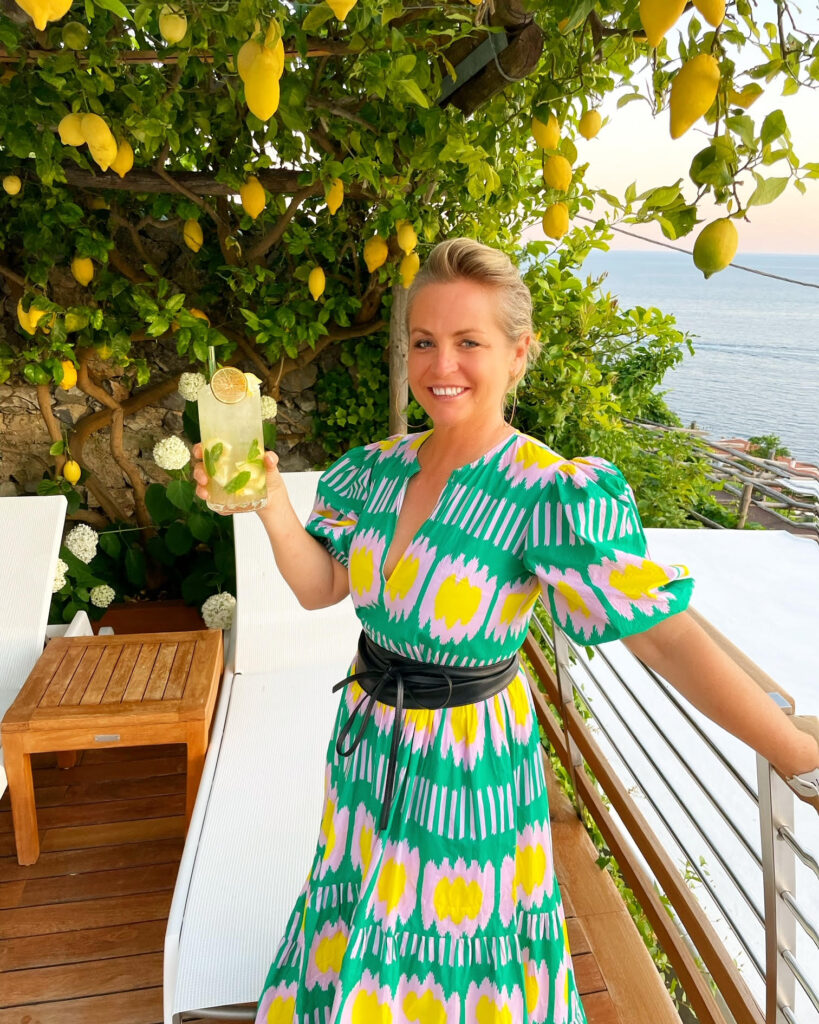
Founder and CEO of Azure Road, Lauren Mowery is a longtime wine, food, and travel writer. Mowery continues to serve on Decanter Magazine’s 12-strong US editorial team. Prior to joining Decanter, she spent five years as the travel editor at Wine Enthusiast. Mowery has earned accolades for her writing and photography, having contributed travel, drinks, food, and sustainability content to publications like Forbes, The Independent, Saveur, Hemispheres, U.S. News & World Report, SCUBA Diving, Plate, Chef & Restaurant, Hotels Above Par, AAA, Fodors.com, Lonely Planet, USA Today, Men’s Journal, and Time Out, among others.
Pursuing her Master of Wine certification, she has also been a regular wine and spirits writer for Tasting Panel, Somm Journal, VinePair, Punch, and SevenFifty Daily. Mowery is a graduate of the University of Virginia and Fordham Law School, and she completed two wine harvests in South Africa.
Follow her on Instagram @AzureRoad and TikTok @AzureRoad


